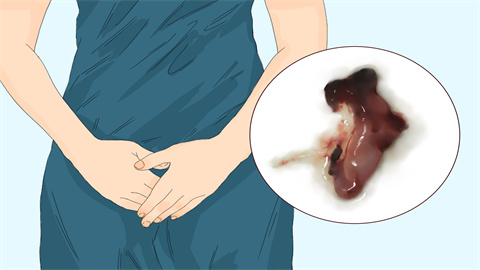What are the causes of natural miscarriage?
Generally, possible causes of spontaneous abortion may include abnormal embryonic development, maternal hormonal imbalance, thyroid dysfunction, systemic lupus erythematosus, and cervical insufficiency. If experiencing any discomfort, timely medical consultation is recommended. Detailed explanations are as follows:

1. Abnormal Embryonic Development
Abnormal embryonic development is the most common physiological cause of spontaneous abortion. During early pregnancy, chromosomal abnormalities, genetic defects, or insufficient developmental potential in the embryo often result in its inability to develop normally. Harmful substances should be avoided during pregnancy, along with maintaining healthy lifestyle habits such as quitting smoking, avoiding alcohol consumption, and maintaining a balanced diet.
2. Maternal Hormonal Imbalance
Maternal hormonal balance is crucial for maintaining pregnancy. Insufficient levels of key hormones such as progesterone and estrogen, or conditions like luteal phase deficiency, may prevent the endometrium from providing adequate nutrition and support for the embryo, potentially leading to spontaneous abortion. Pregnant women are advised to undergo regular hormone testing during pregnancy to promptly detect and adjust hormonal levels.
3. Thyroid Dysfunction
Thyroid dysfunction may be associated with excessive iodine intake or abnormal immune function. Abnormal thyroid hormone levels may alter the endometrial environment, making it unfavorable for embryonic development and potentially causing miscarriage. Accompanying symptoms may include weight changes, mood swings, and irregular menstruation. Treatment may involve medications such as levothyroxine sodium tablets, methimazole tablets, and propranolol hydrochloride tablets, as directed by a physician.
4. Systemic Lupus Erythematosus
Systemic lupus erythematosus may be associated with genetic factors. This disease involves the production of antibodies that attack the body's own tissues, including the placenta and embryo, thereby disrupting the pregnancy environment and causing miscarriage. Symptoms may also include joint pain, rash, and abnormalities in the hematologic system. Treatment options may include prednisolone tablets, cyclosporine soft capsules, and aspirin enteric-coated tablets, under medical guidance.
5. Cervical Insufficiency
Cervical insufficiency may result from cervical hypoplasia, surgical injury, or congenital defects. During pregnancy, the cervix may be unable to maintain its normal structure and function, leading to the expulsion of the embryo or fetus from the uterus. Symptoms may also include painless cervical dilation and increased vaginal discharge. Treatment options may include magnesium sulfate injection, progesterone vaginal gel, and progesterone capsules, as recommended by a physician.
To help prevent spontaneous abortion, pregnant women are advised to maintain healthy lifestyle habits, including a balanced diet, adequate sleep, and appropriate exercise. Regular prenatal checkups are also recommended to promptly identify and manage any underlying health issues.






